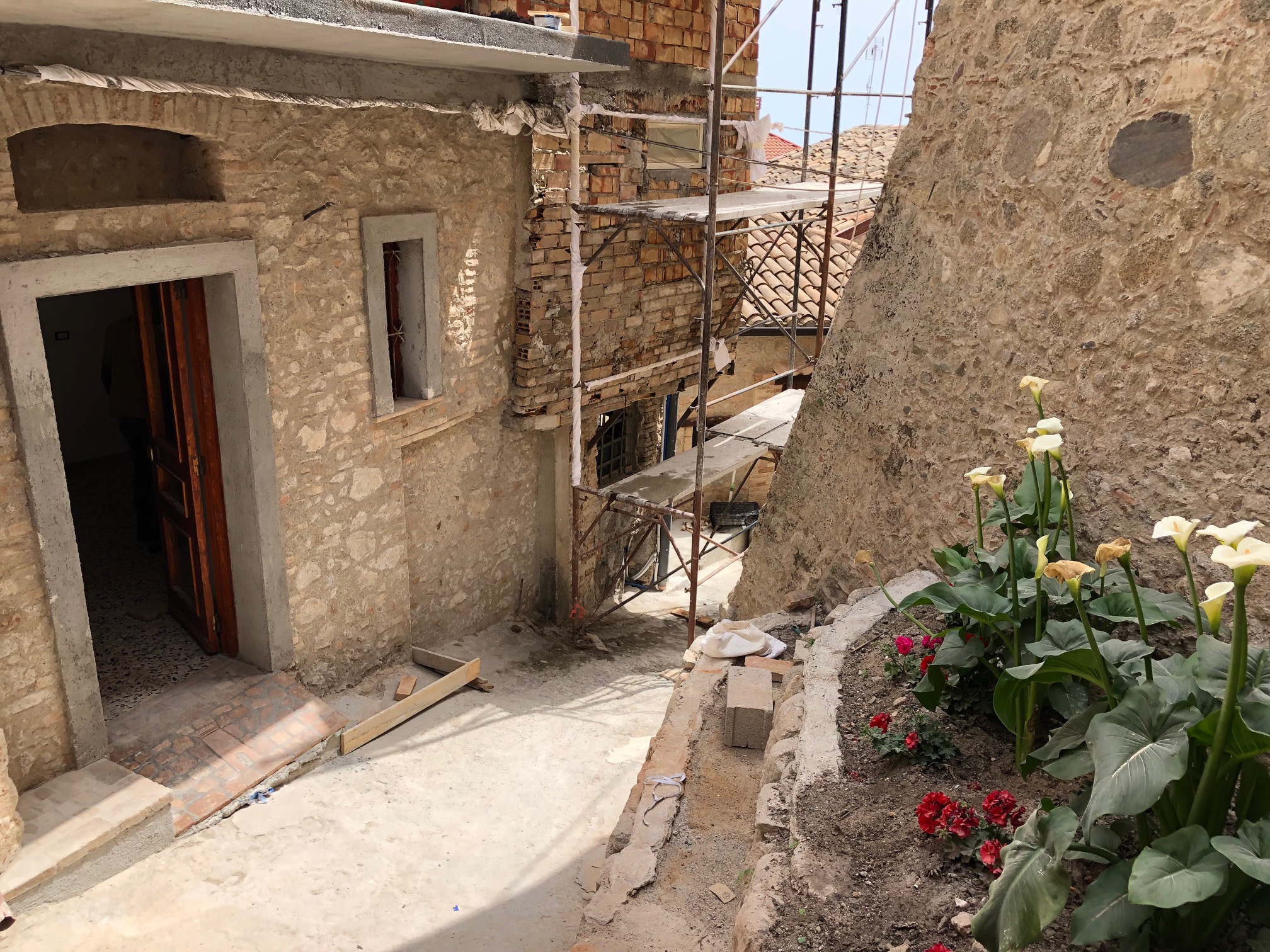
Read: Leviticus 19:33-34
When an alien resides with you in your land, you shall not oppress the alien. The alien who resides with you shall be to you as the native-born among you; you shall love the alien as yourself, for you were aliens in the land of Egypt; I am he LORD your God (Leviticus 19:33-34, NRSV – Updated Edition).
When I arrived in Calabria (the “toe” of Italy’s boot), my guide took me to a little restaurant full of Italians. It’s always a good sign when the locals eat frequent an eatery, and I soon discovered the reason for its popularity. The signature dish was a traditional pasta called stroncatura—made from the parts of the wheat that are usually thrown away. It was delicious, but it also proved to be a provocative metaphor for the rest of the day. So, bookmark that memory and come with me to the village of Camini.
Unlike so many of the small hill-towns in this region, Camini is thriving. This was not the case twenty years ago when Camini seemed well on its way to “ghost town” status. Enter Rosario Antoni Zurzolo and a few other locals, who refused to let their village go down without a fight. With the help of grants, they founded a co-operative based on welcoming skilled immigrants, and that has made all the difference. Today Camini hosts 120 immigrants—one for each of the native-born residents. While some of the locals were wary initially about this influx of “strangers,” most changed their minds when they began to see the positive impact on the town. The local elementary school—which had dwindled to only 5 children—now boasts 85 students. There’s a bus that comes to town 3 to 4 times per day. There’s an ATM. There are two doctors and a pharmacy. In light of all these improvements, it’s not surprising that some of the local young people who had fled in search of employment and opportunities elsewhere have begun to come back home.
Walking the streets of Camini is a bit like entering a delightful maze. Around each corner is a surprise. There are flowers, vines, new construction, shops, and best of all—hope. Artisans from all over the world work in the same places they sell their wares. There are weavers, potters, woodworkers, and ceramic and fabric artists. Houses are being renovated with recycled materials. And from new, shady terraces, all can glimpse the sea.
One of the most remarkable people I met in Camini was a young man named Ibrahím Zakarie. Originally from the Kurdish region of Syria, Ibrahím now works for the cooperative. The war in Syria put his hopes to be doctor on an indefinite hold, but he now applies all of his intelligence and drive to support his adopted community. (The fact that he speaks seven languages comes in handy in place as international as Camini.) Not long ago, Ibrahím and his girlfriend took in an eight-year-old boy from Afghanistan. As I listened to the story, I couldn’t help but think of that verse from Leviticus: “…you shall love the alien as yourself, for you were aliens in the land of Egypt” (Lev. 19:34).
Sometimes we forget that all of us were strangers at some point. Ibrahím reminds us of that. And the town of Camini reminds us that something truly wonderful can be made out of the parts of the wheat that are too often thrown away.
Discussion/Reflection:
- Have you ever been (or felt like) a stranger? If you were welcomed, what did it feel like? If you weren’t, what did that feel like? How might this experience inform your faith? Your attitude toward immigrants?
- What part of this story about Camini did you find most interesting or inspiring? What ideas does it spark for you and for how your country might approach the opportunity of immigration?
Action:
- Read more about the town of Camini by following these links “Without them, we wouldn’t be here anymore” (by Charlotte Oberti in INFOMIGRANTS, Oct. 20, 2022) and “When Italians Abandoned This Village, Refugees Brought It Back to Life” (by Alessia Melchiorre in Reasons to Be Cheerful, May 7, 2021). Learn more about Camini’s cooperative at eurocoopcamini.com
- Welcome someone who is a stranger to you.
Prayer: Give nations, leaders, and citizens all over the world the wisdom to address immigration with hospitality, compassion, and grace.
